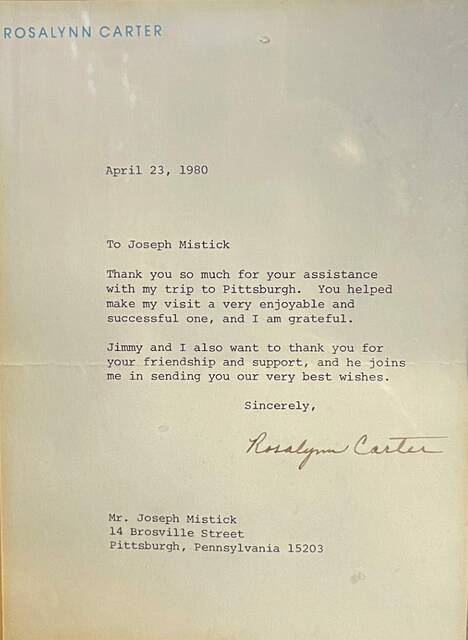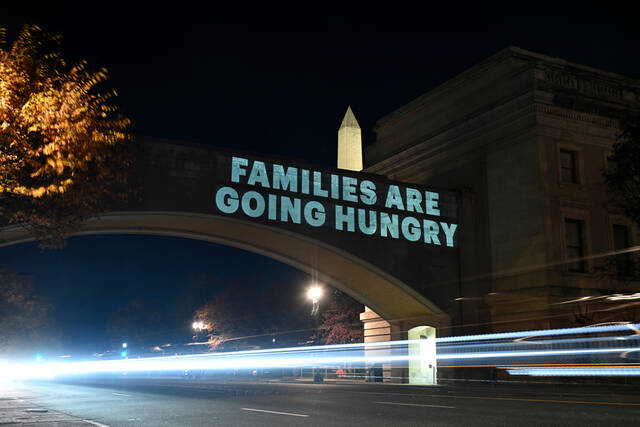The letter is faded now, but the name “Rosalynn Carter” at the top, embossed in robin’s egg blue, still catches the eye. It was sent in April 1980 after the first lady visited Pittsburgh and attended a community meeting at the 12th Street Market House on the South Side. I was part of the local advance team assigned to work with White House staff.
That job sounds more important than it was, but it was big stuff for me at the time. I will never forget the moment Mrs. Carter stepped from the limousine into the sunshine. She seemed to glow in a way that no photos or news clips could capture. She was warm and approachable — a regular person — and the crowd of steel mill families responded in kind.
Two weeks later, her letter arrived at my apartment. “Thank you so much for your assistance with my trip to Pittsburgh. You helped make my visit a very enjoyable and successful one, and I am grateful.
“Jimmy and I also want to thank you for your friendship and support, and he joins me in sending you our very best wishes.”
The letter was typed on that smaller stationery that is used for personal notes, and Mrs. Carter’s signature, likely created by a machine, was real enough for me. I framed it, and it still hangs in my office, even though each of us who helped manage that trip probably got the same letter.
When she died last week, I read it again and remembered more gracious, more sensible and more productive times.
As first lady and after, she got things done. As she was preparing to move into the White House, she told Newsweek, “There’s so much you can do, and there are things I want to do. I want to work on mental health and the problems of the elderly — independently, on my own.”
She remained a leader for mental health care reform for the rest of her life, starting the Georgia Mental Health Forum, chairing the Carter Center Mental Health Task Force, creating the Rosalynn Carter Fellowships for Mental Health Journalism to fight the stigma of mental illness and initiating the Rosalynn Carter Symposium on Mental Health Policy to study all aspects of mental health.
She knew the burdens that family and friends take on when they care for their loved ones who grow old or become ill or disabled, and she did something about it — founding the Rosalynn Carter Institute for Caregivers in 1987. It now advocates on behalf of the 53 million Americans who care for family and friends in need.
When she died, the Secret Service described her best: “Your compassion, diplomacy and penchant to make society better for those less fortunate was an inspiration for an entire generation. It has been our honor to protect and serve you for all of these years. You were truly a treasure for our nation and our Secret Service family.”
One of her greatest lessons for us came after her husband’s defeat in 1980. She had fought fiercely for his reelection, but she knew that losing an election was not an existential event. “I think you accept it,” she said. “When you’ve done all you possibly can do, that’s all you can do.
“You go from one phase of your life to the next phase of life. … I think it’s going to be exciting.”








